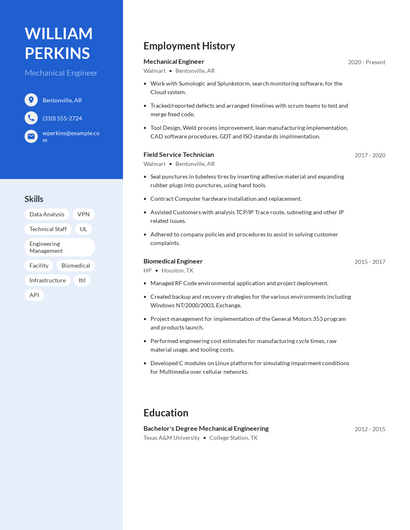
You can make or break your business by getting goods and/or services from one place to another. This is why you should work with the top logistics companies in Charlotte, NC.
Charlotte has a lot of logistics jobs available in the United States thanks to its excellent infrastructure and location on the eastcoast. Its airport, which is the sixth busiest in the nation, offers quick and easy access to other major cities throughout the country.
The Transportation and Logistics industry is a multi-faceted and lucrative sector that focuses on product assembly, planning, purchase, moving and storage, sales, customer service, and distribution. The industry is a vital part of the economy, and offers a wide range of job opportunities for qualified candidates.
Logistics jobs are available in charlotte, nc. These range from fulfillment to warehouses. Supply chain management is the other name for this industry. It helps businesses increase their efficiency and profit.
Logistik provides a range of services for warehousing, distribution, and the transportation of goods from one point to another, no matter the size or nature of the business. It is a provider of third-party (3PL) logistics, and has been around since 1969.

It is one of the biggest logistics providers in the region. With more than 1 million square feet and 250 employees, it has the most warehouse space.
The company is a logistics provider that focuses on delivering exceptional results.
Customers include major companies and consumers in the fields of retail, ecommerce and manufacturing, technology and telecoms, aerospace and defence, life sciences, health care and medical equipment.
XPO Logistics is a leading provider of logistics services in the United States and Europe. They also provide comprehensive logistics and transportation solutions for businesses throughout Asia and Europe. Their global network consists of more than 60 offices and over 1,000 employees worldwide, including in France, Italy, Spain, Japan, the U.S., and Canada.
They handle all types freight, including small parcels and large trucks. Many top brands trust them, such as Disney, Pepsi and Toyota.
NASCENT has been a pioneer in the provision of advanced technologies and solutions for the intermodal industry. NASCENT provides a range of services using advanced automation that helps companies to reduce costs and boost efficiency.

NASCENT, in addition to traditional trucking services, has a wealth of experience with intermodal services. They also offer a range of other transportation options, including flatbed, dry van, and refrigerated services.
Clients include wholesalers, retailers and distributors.
GES is a North American forwarding service that focuses on cargo security. These include 24-hour surveillance, closed-circuit televisions and keypad accessibility.
The company also features a robust information technology infrastructure that allows it to provide its customers with reliable and secure transportation solutions. This makes it the preferred vendor for many clients.
FAQ
What jobs are available in logistics?
There are different kinds of jobs available in logistics. Here are some:
-
Warehouse workers - They load and unload trucks and pallets.
-
Transport drivers - These are people who drive trucks and trailers to transport goods or perform pick-ups.
-
Freight handlers are people who sort and pack freight into warehouses.
-
Inventory managers – These people oversee inventory at warehouses.
-
Sales representatives: They sell products to customers.
-
Logistics coordinators: They plan and manage logistics operations.
-
Purchasing agents - They purchase goods and services needed for company operations.
-
Customer service representatives - They answer calls and emails from customers.
-
Shippers clerks - They process shipping order and issue bills.
-
Order fillers - These people fill orders based on what has been ordered.
-
Quality control inspectors are responsible for inspecting incoming and outgoing products looking for defects.
-
Others - There are many types of jobs in logistics such as transport supervisors and cargo specialists.
What are manufacturing & logistics?
Manufacturing refers the process of producing goods from raw materials through machines and processes. Logistics encompasses the management of all aspects associated with supply chain activities such as procurement, production planning, distribution and inventory control. It also includes customer service. Manufacturing and logistics are often considered together as a broader term that encompasses both the process of creating products and delivering them to customers.
What is the responsibility of a logistics manager?
A logistics manager makes sure that all goods are delivered on-time and in good condition. This is done through his/her expertise and knowledge about the company's product range. He/she must also ensure sufficient stock to meet the demand.
What is the difference between Production Planning, Scheduling and Production Planning?
Production Planning (PP) refers to the process of determining how much production is needed at any given moment. This can be done by forecasting demand and identifying production capabilities.
Scheduling involves the assignment of dates and times to tasks in order to complete them within the timeframe.
What does warehouse mean?
A warehouse is a place where goods are stored until they are sold. It can be an outdoor or indoor area. Sometimes, it can be both an indoor and outdoor space.
What are the four types in manufacturing?
Manufacturing is the process that transforms raw materials into useful products. It includes many different activities like designing, building and testing, packaging, shipping and selling, as well as servicing.
Statistics
- It's estimated that 10.8% of the U.S. GDP in 2020 was contributed to manufacturing. (investopedia.com)
- In the United States, for example, manufacturing makes up 15% of the economic output. (twi-global.com)
- (2:04) MTO is a production technique wherein products are customized according to customer specifications, and production only starts after an order is received. (oracle.com)
- Many factories witnessed a 30% increase in output due to the shift to electric motors. (en.wikipedia.org)
- In 2021, an estimated 12.1 million Americans work in the manufacturing sector.6 (investopedia.com)
External Links
How To
How to use the Just-In Time Method in Production
Just-intime (JIT), which is a method to minimize costs and maximize efficiency in business process, is one way. It allows you to get the right amount resources at the right time. This means that you only pay for what you actually use. The term was first coined by Frederick Taylor, who developed his theory while working as a foreman in the early 1900s. After observing how workers were paid overtime for late work, he realized that overtime was a common practice. He concluded that if workers were given enough time before they start work, productivity would increase.
JIT is a way to plan ahead and make sure you don't waste any money. Look at your entire project, from start to end. Make sure you have enough resources in place to deal with any unexpected problems. You'll be prepared to handle any potential problems if you know in advance. This way you won't be spending more on things that aren’t really needed.
There are many JIT methods.
-
Demand-driven JIT: This is a JIT that allows you to regularly order the parts/materials necessary for your project. This will allow for you to track the material that you have left after using it. This will allow you to calculate how long it will take to make more.
-
Inventory-based: This type allows you to stock the materials needed for your projects ahead of time. This allows you to forecast how much you will sell.
-
Project-driven: This method allows you to set aside enough funds for your project. Knowing how much money you have available will help you purchase the correct amount of materials.
-
Resource-based JIT : This is probably the most popular type of JIT. Here you can allocate certain resources based purely on demand. You will, for example, assign more staff to deal with large orders. If there aren't many orders, you will assign fewer people.
-
Cost-based: This is similar to resource-based, except that here you're not just concerned about how many people you have but how much each person costs.
-
Price-based: This is a variant of cost-based. However, instead of focusing on the individual workers' costs, this looks at the total price of the company.
-
Material-based: This is quite similar to cost-based, but instead of looking at the total cost of the company, you're concerned with how much raw materials you spend on average.
-
Time-based JIT is another form of resource-based JIT. Instead of focusing solely on the amount each employee costs, focus on how long it takes for the project to be completed.
-
Quality-based: This is yet another variation of resource-based JIT. Instead of worrying about the costs of each employee or how long it takes for something to be made, you should think about how quality your product is.
-
Value-based JIT : This is the newest type of JIT. In this scenario, you're not concerned about how products perform or whether customers expect them to meet their expectations. Instead, you are focused on adding value to the marketplace.
-
Stock-based. This method is inventory-based and focuses only on the actual production at any given point. This is used to increase production and minimize inventory.
-
Just-in-time (JIT) planning: This is a combination of JIT and supply chain management. It is the process of scheduling components' delivery as soon as they have been ordered. It is essential because it reduces lead-times and increases throughput.